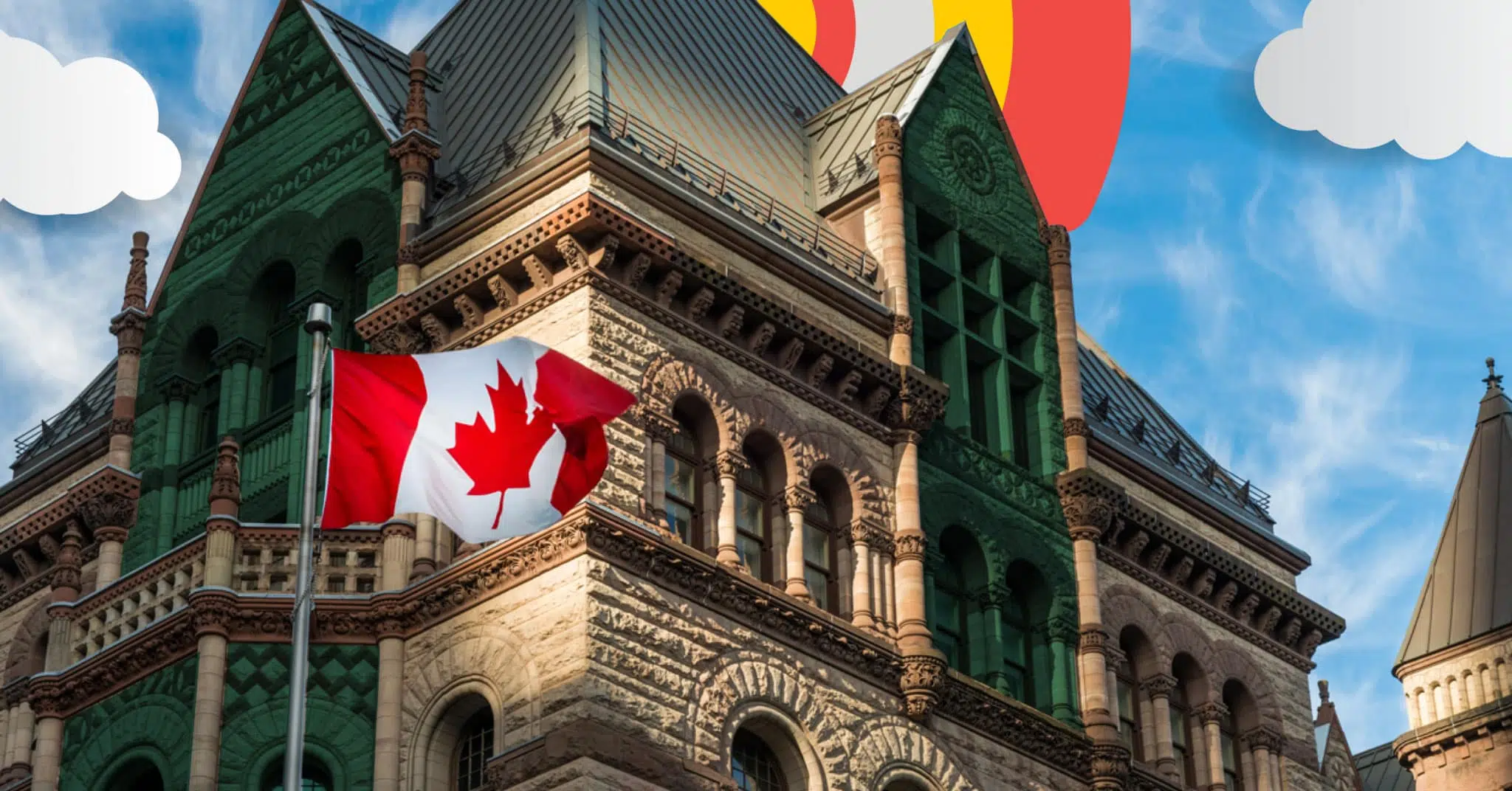What Is a Collateral Charge Mortgage?

Table of contents
A collateral charge mortgage allows homeowners to borrow more against their property’s value in the future without refinancing. The primary difference compared to a conventional mortgage registered as a standard charge is that these loans are registered for the exact amount. In contrast, lenders register a collateral charge mortgage higher than the original loan amount. This provides flexibility, allowing borrowers to access the equity in their home as they pay down their mortgage balance or the property value increases.
Key Takeaways
- Collateral charge mortgage registrations provide flexibility by allowing you to borrow more as your equity or home value increases.
- Switching lenders can be more costly due to discharge fees with a collateral charge mortgage registration.
- This mortgage type does not allow secondary financing behind the first mortgage against your property’s title.
How Does a Collateral Charge Mortgage Work?
A collateral charge mortgage allows your home to be used as collateral for multiple loans, including lines of credit, personal loans, and even car loans. Unlike a conventional mortgage, where the loan is registered as a standard charge and reduces as you pay it down, a collateral mortgage is re-advanceable. The lender can register a collateral charge for up to 125% of your property’s value, allowing you to borrow more at any time after closing without needing to refinance.
For example, if your home is valued at $400,000, a lender may register your mortgage for up to $500,000 (125% of $400,000). While you may only borrow $320,000 initially (20% downpayment), this setup allows you to borrow more in the future without refinancing. In the future, you can borrow up to $500,000 without registering a new charge for the higher amount if the property increases in value by another $225,000 to $625,000 ($625,000 x 80% = $500,000), and you can qualify for the higher mortgage amount.
This additional borrowing can be through a home equity line of credit (HELOC), another mortgage within the same collateral charge, personal loans, or even a credit card secured by your home’s value. The extra flexibility can be beneficial, but it also means the registered mortgage charge does not allow secondary financing behind your first mortgage.
Collateral Mortgage vs. Conventional Mortgage
One of the primary distinctions between a collateral mortgage and a conventional mortgage is how the loan is registered. In a conventional mortgage, the loan is registered as a standard charge and only for the mortgage amount, making it easier to switch between lenders. A collateral mortgage is registered for more than the mortgage amount, making it more challenging to transfer to another lender without paying to discharge the mortgage.
Many lenders usually do not permit the transfer or assignment of a collateral charge. Therefore, if you hold a collateral mortgage, you can only have it “discharged” by your current lender. This process means canceling the existing mortgage and paying it off with funds from another lender where your mortgage is transferred. Unlike conventional mortgages, which are set up as standard charge registrations, this is not a simple transfer.
Key Differences
- Registration Amount: Collateral mortgages are registered for up to 125% of the property value. Conventional mortgages are registered strictly for the mortgage amount, which decreases with each mortgage payment.
- Flexibility: Collateral mortgages allow borrowers to access additional funds without refinancing, whereas conventional mortgages require refinancing and requalifying to borrow more.
- Switching Lenders: Switching a collateral charge mortgage to another lender can be costly, whereas conventional mortgages are easier to transfer at the end of the mortgage term as they are registered as standard charge mortgages.
Pros of a Collateral Charge Mortgage
Flexibility to Borrow More – A collateral mortgage allows you to borrow more without refinancing. This could be useful for making home improvements, giving you quick and easy access to more cash.
No Need for Reappraisal – With a collateral charge mortgage, you can access your home equity as you pay down your loan without having to requalify or get a new appraisal as long as you borrow within your approved global limit. This makes borrowing easier and faster than with a conventional mortgage.
Consolidation of Debt – Collateral charge mortgages can help you consolidate various types of debt (e.g., personal loans, car loans) under one umbrella. This means all loans are secured against your home, possibly giving you access to lower interest rates on credit facilities that typically come at higher rates when unsecured.
Legal Protection – In most provinces, if a person or corporation tries to file a lien or charge, such as a Notice of Security Interest (NOSI), because of a disagreement with a contractor, they will typically find it challenging or next to impossible to do so behind your collateral charge mortgage.
Cons of a Collateral Charge Mortgage
Difficulty Switching Lenders – One significant drawback is the difficulty of transferring a collateral mortgage to a new lender at renewal time. This can result in additional fees to discharge the mortgage, and you will need to pay off any revolving credit associated with the collateral charge mortgage at the time of transfer.
Potential for Over-Borrowing – Since a collateral charge mortgage allows you to register up to 125% of your home’s value, there’s a risk of overextending yourself financially. If property values drop, you could owe more than your home is worth.
Impact on Future Financing – With a collateral charge mortgage registration, your lender won’t permit any secondary financing behind your first mortgage, which means secondary lenders are not protected if you default on your mortgage.
On-Demand Recall – A collateral charge mortgage registration is set up as an on-demand loan, allowing your lender to recall your loan in full if you break the terms of your mortgage contract, such as taking down one of the supporting walls of the collateral property.
Mortgages giving you a headache?
Take a breather and work with nesto experts to make it easy for you.
Collateral Charge Mortgage vs. HELOC
A collateral charge mortgage is tied to your mortgage agreement, offering flexibility to borrow more later during the term without refinancing. A HELOC is a revolving credit facility held within a collateral charge mortgage secured by your home’s equity.
When Should You Consider a Collateral Charge Mortgage?
A collateral charge mortgage registration can be an excellent option if you anticipate needing more money without the hassle and costs of refinancing or if your financing goals should change. It’s beneficial for homeowners planning to renovate, invest, or consolidate debt or reuse their HELOC to help with children’s post-secondary education. However, if you’re concerned about switching lenders, you may want to consider a conventional mortgage instead.
Interest Rates and Fees on Collateral Charge Mortgages
The interest rates on collateral charge mortgages are typically similar to those of conventional mortgages. However, the added flexibility often comes with higher fees when it comes time to switch lenders. Remember that you may be required to pay additional fees to transfer your mortgage to a new lender, even at renewal time.
Important Note: Not all lenders offer competitive rates for collateral mortgages, so it’s crucial to shop around and compare the overall terms, including prepayment penalties and additional fees.
Eligibility for a Collateral Charge Mortgage
The requirements to qualify for a collateral mortgage in Canada are similar to those of a conventional mortgage.
- Income Stability: Lenders will examine your debt-to-income ratio and ability to make timely payments.
- Minimum Downpayment: You will need at least a 20% downpayment for most collateral mortgages.
- Credit Score: A good credit score (typically 680 or higher).
Frequently Asked Questions
What is the difference between a collateral charge mortgage and a conventional mortgage?
A collateral charge mortgage is registered for more than the mortgage amount and allows additional borrowing without refinancing within the approved global limit. A conventional mortgage is registered as a standard mortgage charge and only for the mortgage amount, and you will need to refinance if you want to borrow more later.
Can I switch lenders with a collateral mortgage?
Switching lenders with a collateral mortgage is possible, but unlike a conventional mortgage, it often comes with added legal fees.
How much can I borrow with a collateral charge mortgage?
You can borrow up to 80% of your property’s value with a collateral charge mortgage, depending on your lender’s terms, your home’s appraised value, and what you qualify for. However, if you set up a HELOC under your collateral charge, it will be limited to 65% of your property value.
Are collateral charge mortgages available at all lenders?
Not all lenders offer collateral charge mortgages, and some, like TD Bank, only set up their mortgages as a collateral charge. Be sure to ask your lender about the mortgage registration type they offer.
Is a collateral charge mortgage the best option for me?
A collateral charge mortgage may be a good option if you need flexibility for future borrowing and want to avoid penalties for refinancing. However, switching lenders may be difficult, and there are potential higher fees. Consider your financial situation and goals before deciding.
Final Thoughts
A collateral charge mortgage offers flexibility for homeowners who may need to borrow additional funds in the future without refinancing. However, this flexibility has some trade-offs, such as the potential for over-borrowing. A collateral mortgage could be a good fit if you value the ability to access your home’s equity easily. Otherwise, a conventional mortgage, set up as a standard charge registration, may offer more straightforward terms and fewer fees when renewing or switching lenders.
Make sure to weigh the pros and cons based on your financial goals and consult nesto’s mortgage experts to see if a collateral charge mortgage best fits your unique mortgage needs.
Why Choose nesto
At nesto, our commission-free mortgage experts, certified in multiple provinces, provide exceptional advice and service that exceeds industry standards. Our mortgage experts are non-commissioned, salaried employees who provide impartial guidance on mortgage options tailored to your needs and are evaluated based on client satisfaction and advice quality. nesto aims to transform the mortgage industry by providing honest advice and competitive rates using a 100% fully digital, transparent, seamless process.
nesto is on a mission to offer a positive, empowering and transparent property financing experience – simplified from start to finish.
Contact our licensed and knowledgeable mortgage experts to find your best mortgage rate in Canada.
Ready to get started?
In just a few clicks, you can see our current rates. Then apply for your mortgage online in minutes!
in this series Types of Mortgages
- What Is A Home Equity Loan In Canada? next read
- What is a Cashback Mortgage? next read
- Blended Mortgages: How They Work & Save You from Prepayment Penalties next read
- What is a Conventional Mortgage next read
- What Is a Collateral Charge Mortgage? currently reading
- What is a Readvanceable Mortgage? next read















